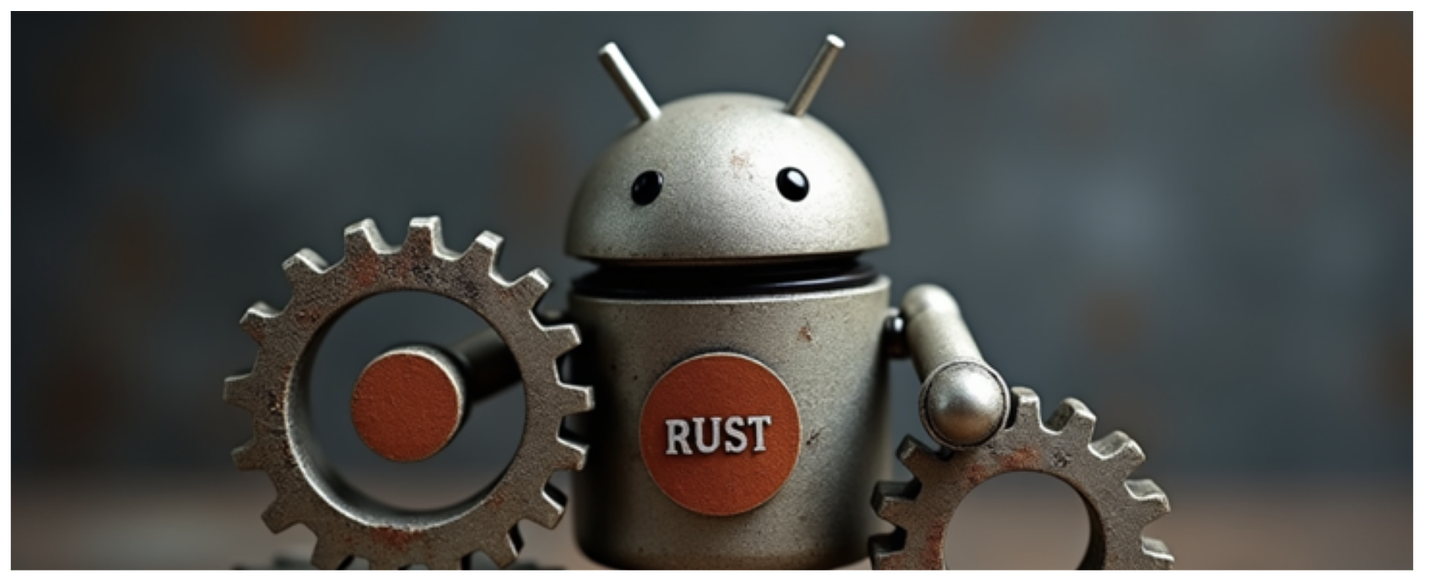🛡️ Google Tackles Android Bugs, Car Hacks, Meta's AR Future
Good morning. It’s Thursday, September 26. Today we are covering:
Google's Shift to Rust Programming Cuts Android Memory Vulnerabilities by 52%
Millions of Vehicles Could Be Hacked and Tracked Thanks to a Simple Website Bug
Hands-on with Orion, Meta's first pair of AR glasses
PayPal to allow cryptocurrency buying, holding and selling for US merchants
IoT devices will be the catalyst for the 4th industrial revolution
Let’s dive in
Google's Shift to Rust Programming Cuts Android Memory Vulnerabilities by 52%
By Ravie Lakshmanan via The Hacker News
Google's shift to Rust and other memory-safe languages reduced Android memory vulnerabilities from 76% to 24% in six years, highlighting the effectiveness of its secure-by-design approach.
Memory vulnerabilities decline over time as code matures, with new unsafe code presenting the greatest risks, while safe coding practices mitigate vulnerabilities more effectively in older systems.
Google focuses on interoperability between Rust, C++, and Kotlin to incrementally reduce memory vulnerabilities, collaborating with Arm to strengthen GPU security across the Android ecosystem.
𝕏: Another take: "Google's Shift to Rust Programming Cuts Android Memory Vulnerabilities by 52%" - Joshua J. Drake (@jduck)
Millions of Vehicles Could Be Hacked and Tracked Thanks to a Simple Website Bug
By Andy Greenberg via WIRED
Kia vehicles were vulnerable to a website flaw that allowed hackers to hijack internet-connected features, including tracking, unlocking, and starting millions of cars using just a license plate number.
The vulnerability, which affected dozens of Kia models, highlights a broader issue with poor web security across the automotive industry, affecting multiple brands like Honda, Toyota, and Hyundai.
Despite efforts to patch the flaw, security researchers warn that web-based vulnerabilities remain prevalent in cars, emphasizing the need for automakers to prioritize both embedded and web security.
𝕏: We need new laws on car cybersecurity standards including customer rights to have security patches for a set period of time (10 years minimum or life of the car) and right to disconnect the car from the Internet. - David Shipley (@davidshipley)
The best way to reach new readers is through word of mouth. If you click THIS LINK in your inbox, it’ll create an easy-to-send pre-written email you can just fire off to some friends.
Hands-on with Orion, Meta's first pair of AR glasses
By Alex Heath via The Verge
Meta's Orion AR glasses offer a significant leap in augmented reality, featuring Micro LED projectors and silicon carbide lenses for an immersive 70-degree field of view, but remain costly and complex to produce.
The glasses integrate AI to overlay digital information on real-world objects, enabling tasks like ingredient identification and interactive 3D experiences, though full-fledged hologram communication is still in development.
Meta has postponed Orion's consumer release due to its $10,000 per unit cost, with plans to refine the technology for affordability and improved performance in future versions.
𝕏: Meta hyping up AR smart glasses that it's not shipping reminds me of HoloLens. Both show that this tech is many years away from being in glasses you'll actually want to wear every day - Tom Warren (@tomwarren)
PayPal to allow cryptocurrency buying, holding and selling for US merchants
Reuters
PayPal will now allow U.S. merchants to buy, hold, and sell cryptocurrencies from their business accounts, expanding its crypto capabilities beyond consumers.
This move follows the growing market acceptance of cryptocurrency, including bitcoin ETFs approved by the U.S. SEC earlier this year.
PayPal is also enabling merchants to transfer crypto externally to third-party wallets, although the service will not be available in New York State at launch.
𝕏: PayPal specifically shouts out Solana in this announcement. - Steven (@Dogetoshi)
IoT devices will be the catalyst for the 4th industrial revolution
By Svetlin Todorov via Fast Company
IoT devices are driving the 4th industrial revolution, enhancing industrial automation by optimizing efficiency, reducing downtime, and promoting sustainability.
By integrating AI and machine learning, IoT enables predictive maintenance, boosts product quality, and enhances the use of renewable energy in industrial operations.
The combination of IoT-powered robotics and autonomous systems is paving the way for fully automated factories, transforming industries with smarter, more connected processes.
Trending in AI
OpenAI to remove non-profit control and give Sam Altman equity
FTC cracks down on DoNotPay, others for ‘deceptive AI claims and schemes’
Graph Embeddings 101: Key Terms, Concepts and AI Applications
Thanks for reading to the bottom and soaking in our Newslit Daily fueled with highlights for your morning.
I hope you found it interesting and, needless to say, if you have any questions or feedback let me know by hitting reply.
Take care and see you tomorrow!
P.S. Want to advertise with us? We’d love to hear from you.
How was today’s email?








